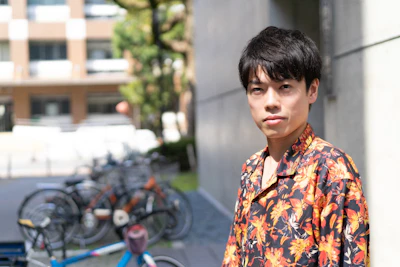01.09FRI
Relay Column: The Twilight of Cram School Culture & the Technology of Exam Study (Tatsuya Fujimura)

PROFILE

Tatsuya Fujimura
Born in Osaka Prefecture in 1992. Assistant professor at the Graduate School of Education, Kyoto University. Graduated from the Faculty of Education, Kyoto University. Withdrawn from the doctoral program at the Graduate School of Education, Kyoto University. His specialties are educational sociology, historical sociology, and cultural sociology.
There was a time when the culture of preparatory schools was openly discussed. Generally, a preparatory school is viewed as a place focused on helping students successfully pass university entrance exams by providing the necessary knowledge and skills in a rational manner. This perspective isn’t entirely incorrect. However, at the same time, unique cultural elements that can be described as a specific culture of preparatory schools were also thriving. There were erudite teachers who spoke about philosophy, literature, and life theories, disregarding the official texts and curriculum; former student activists who shared their experiences and organized students to participate in protests; and charismatic instructors who captivated students with their flamboyant fashion, excellent storytelling, and stunning performances. The environment was diverse, a blend of high and low elements, and it exuded an underground chaos that was hardly educational.
From the perspective of rational exam preparation, these aspects could be viewed as a kind of surplus or even waste. However, for students continuing their studies with hopes of a comeback the following spring, the year as a "ronin" (a student preparing for a re-examination) is long and lonely. Achieving status through educational background or employment is a form of delayed gratification. Merely chasing a distant carrot doesn't always sustain the motivation of the examinee. This reveals the underlying functions of preparatory school culture. Classes that expose students to philosophy and literature inspire a longing for the university waiting in "a slightly further future." The anecdotes from student movements direct their gaze toward a society filled with conflicts that spread beyond school and exam studies. Alternatively, theatrical classes, which amaze students with fashion and speaking skills, connect examinees about to fall out of the world of effort and diligence to learning in the "here and now." This very culture has likely supported anxious and lonely ronin students behind the goals of acquiring educational credentials and the normative culture of effort and diligence.
This article is for members only.
Please register to read the rest of the article.
What you can do with a membership
- Read members-only articles
and use text-to-speech. - Unlimited article favourites
and browsing history. - Attend members-only events.
- Get the latest information
with our email newsletter.
CONCEPT VIDEO
"fashion tech news" Unveils New Logo & Concept Video
TOP ARTICLES
RELATED ARTICLES
CONCEPT VIDEO
"fashion tech news" Unveils New Logo & Concept Video
CONTACT
If you have any questions or enquiries, please enter your details in the form below.








.jpg?w=400&fm=webp)

.jpeg?w=400&fm=webp)




.JPG?w=400&fm=webp)

.png?w=400&fm=webp)

